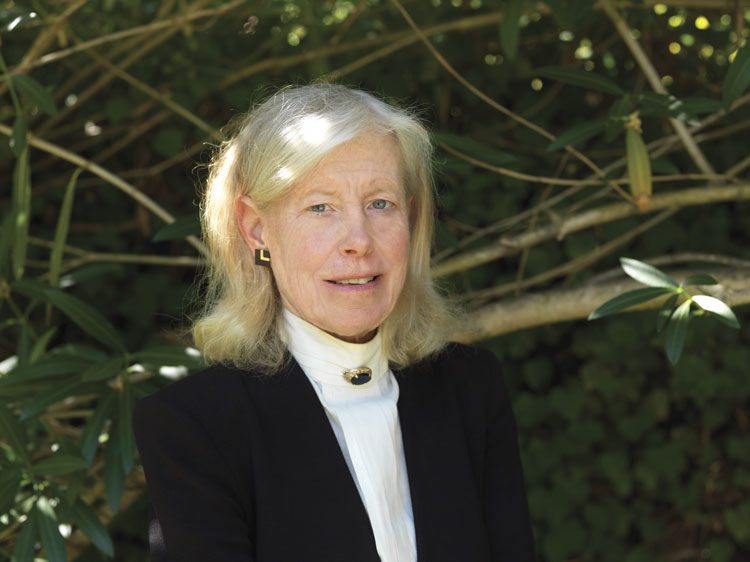Stanford law prof remembered as leading legal ethics scholar and advocate for access to justice

Deborah L. Rhode. Photo courtesy of Stanford University.
Deborah L. Rhode, a leading legal ethics scholar and strong advocate for enhanced access to justice, died last week.
Rhode, who was 68, was a longtime professor at Stanford Law School, which is where she founded the Stanford Center on the Legal Profession in 2008.
She also formerly chaired the ABA’s Commission on Women in the Profession and received multiple ABA awards in recognition of her professional responsibility and public service work.
Gillian Hadfield, a professor at the University of Toronto’s law school who co-authored articles with Rhode, says her friend has long been the leading voice for the view that lawyers’ monopolization of the legal profession has been at the foundation of the access-to-justice crisis.
This perspective has helped drive many of the ongoing efforts in the United States to reform the way that the profession is regulated, says Hadfield, who played a central role in Utah’s work to open up the legal industry to nontraditional service providers.
“All of us today who are leading the effort to make change are building on her work and her commitment,” Hadfield wrote about Rhode in an email Monday. “She lent her name and reputation, stature and repertoire of academic articles and books to all these initiatives. Deborah was thus actively involved in all the ongoing efforts in the role of ‘éminence grise.’”
Rhode had been a member of the Stanford Law faculty since 1979, and the law school’s Rhode Public Interest Award is named after her.
In an email, a law school spokeswoman said Rhode “was the nation’s most frequently cited scholar on legal ethics and the author of 30 books in the fields of professional responsibility; leadership; and gender, law and public policy.”
“A beloved teacher and mentor to many, Deborah will be missed by her faculty colleagues, current and former students, and generations of lawyers and legal scholars across the globe,” spokeswoman Stephanie Ashe wrote.
No cause of death has been announced. Stanford Law School reported that Rhode died Friday.
Jason Solomon, the executive director of the Stanford Center on the Legal Profession, said Rhode had “an enormous impact on the legal profession.”
“Today, there are more lawyers doing pro bono, more women in leadership positions, more law schools teaching leadership, and more states exploring regulatory reform to increase access to justice,” Solomon wrote in an email Monday. “Deborah’s influence is central to all these developments.”
Arthur Lachman, a Washington-based ethics lawyer who previously was the president of the Association of Professional Responsibility Lawyers, called Rhode “a giant in our field of legal ethics.”
“She advocated early on for using a ‘pervasive method’ of teaching legal ethics to law students with the idea that principles of professional responsibility should be incorporated into the discussion of substantive legal principles and placed in the context of particular practice and client situations,” Lachman wrote in an email Monday.
“I particularly admired her commitment to improving access to justice and her persistence and tenaciousness over so many years to swim against the current, to call out when the profession was serving itself rather than the public, and to make regulatory and UPL reform a priority,” Lachman wrote. “For me, her legacy is to continue her sense of urgency on these issues and get reforms adopted everywhere.”



